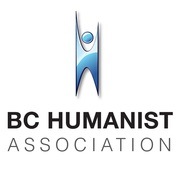By Ian Bushfield, executive director of the B.C. Humanist Association
Religions have traditionally approached the topic of animal rights in one of two ways. The more conservative religions state that God gave dominion to us over all ‘lesser’ species to do with as we please. Alternatively, some say we were charged with stewardship over God’s creation, so we should reduce the harm that comes to God’s creatures.
Yet today, more than one-in-three British Columbians are non-religious. Of this non-religious community, many atheists and agnostics put forward an ethical system called Humanism. Humanism is about being good without God by basing our worldview on reason, compassion, and hope. It gives us the ability to create our own values and ethics, while forcing us to be skeptical of all claims – including our own.
Humanists see evolution by natural selection as the best theory we have to explain the diversity of life on earth. This theory tells us that given enough time, simple self-replicating molecules adapted and reproduced, eventually giving rise to all of the plants, animals, and people alive today. We therefore recognize that we are not superior to other animals and that we are a part of nature itself. We respect the rights of animals because it is a mere extension of the rights that we grant to other human beings.
Furthermore, as we learn more about the different species of life on earth, we are beginning to recognize that animals feel pain, fear, and suffering to different extents. The more an animal is like us, the more we identify with its suffering and seek to alleviate that.
All Humanists oppose torture and cruelty to animals. However, Humanism is a worldview without dogma, so our beliefs form a wide spectrum when applied to the real world. For example, some strongly oppose the existence of zoos and aquariums, believing that the animals would be better off in the wild. Others argue that the scientific and conservation benefits of these institutions outweigh those arguments. Many Humanists support animal research, provided it is done in a humane and ethical way, while others oppose it.
Where many religions have taboos on what foods may or may not be eaten (sometimes depending on the day of the week), Humanists use our own reasoning to decide what we each feel is ethical to consume. Some Humanists strongly oppose the eating of meat, as there are many alternatives to provide our required nutrients and there are many deplorable aspects of modern factory farming; however, many Humanists are not vegetarians, but try to choose more ethical and sustainable food sources whenever possible. Few Humanists support the ritualistic slaughter practices of some religions which involve letting an animal bleed to death.
Humanism is a dynamic and progressive philosophy. What is considered moral and acceptable today will be put under a critical eye and may be rejected as barbaric in the future. By rejecting the authority of dogmatic tradition, we can focus on creating a better future for all life on earth.
Note: VHS is interested in all ethical points of view relating to animal rights and welfare. We plan to publish more articles from different philosophical and religious standpoints in future blog posts.

